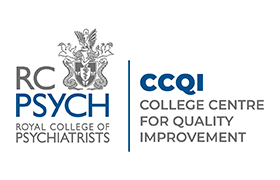“Every Interventional Radiology procedure is carried out under local anaesthetic meaning the patient is awake. Using the (VR) headset helps block pain receptors and helps them to take their mind off of what is happening. You can see that it works because the machines show their vital signs stabilise during the procedure while wearing the headset.”
Andrea Hattabi, Senior Sister for Interventional Radiology, Medway NHS Foundation Trust, March 2024
“VR experiences can help healthcare professionals develop a deeper understanding of the challenges faced by individuals with sight loss. By immersing themselves in virtual environments that simulate visual impairments, trainees can gain empathy, sensitivity and awareness, which are essential qualities for delivering patient-centred care.”
Digital future becomes a reality for learners at Gloucestershire Hospitals’, Gloucestershire Hospitals NHS Foundation Trust, May 2024
Virtual Reality (VR) is increasingly integrated into healthcare to enhance patient care. When paired with simulation, VR is becoming a common tool for training and education. It immerses clinicians in realistic simulations of procedures, allowing them to practice techniques effectively and cost-efficiently.
The Virtual Reality and Simulation Summit emphasises the practical application of these technologies in current clinical practice. Rather than focusing on theoretical concepts, the summit features real-world case studies demonstrating how VR and simulation are actively improving medical practice today. Attendees will gain valuable insights into these practical benefits.
This conference will enable you to:
Network with colleagues who are working to implement virtual reality and simulation in healthcare
Understand the national context and potential
Improve your understanding of how we can bring virtual reality and simulation together to improve training and education of clinicians
Reflect on case studies in various areas where virtual reality is being implemented in clinical practice
Understand the practicalities of implementing virtual reality for patients in a hospital setting
Ensure organizational support and understand the economic case for this technology
Understand how the use of simulation can improve patient care
Understand how simulation involving virtual patients can improve training efficiency and cut costs communication skills
Learn from case studies including
- learning to spot signs of sepsis
- preparing children for surgery
- supporting recovery from major-trauma
- training future pharmacistsSupports CPD professional development and acts as revalidation evidence. This course provides 5 Hrs training for CPD subject to peer group approval for revalidation purposes








